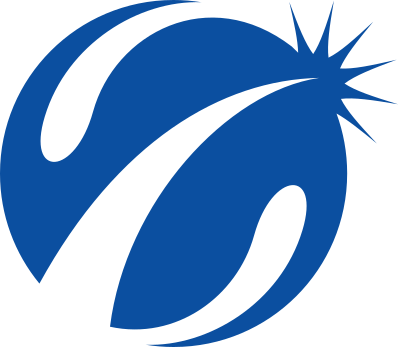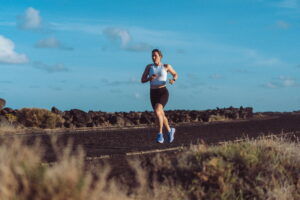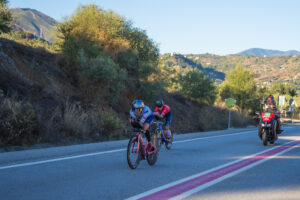A chat with coach Joel Filliol

Joel Filliol is a senior coach at the National Triathlon Center in Victoria, BC and the Canadian Olympic Coach. He is currently getting his team ready for the Olympic games in Beijing and was kind enough to have a chat with us.
ST: Joel, how long have you been the Canadian National coach?
Joel: I was hired in the Senior Coach role at the National Triathlon Centre in Victoria, BC in January 2006. I was recently named Canada’s Olympic Coach for the Beijing Games, so preparing the team for the games is my focus this year.
ST: What is your background??
Joel: I started in triathlon with the Kids of Steel Series in Canada when I was 11. My first triathlon was an event put on by the Cornwall Cycle club in eastern Ontario in 1989. Joe McNamara, who redesigned the Slowtwitch logo recently, was a member of the club at the time and the club was recently profiled on Slowtwitch, which was cool to see. My father is an avid cyclist and I did a lot of riding with him growing up, so I was hooked on endurance sport from a young age. Even coming from eastern Ontario I could never understand the fascination with hockey; endurance sports have been my passion since then.
I competed as a junior representing Canada at Junior Worlds in Duathlon and Triathlon up to 1998. I wasn't particularly talented as an athlete – I was probably a better cyclist than triathlete, but I enjoyed training and racing. My girlfriend at the time, who was also a triathlete, started doing significantly better than I was, so I figured I'd put my energy into being a great training partner for her and support her career. I went from being a training partner to being her coach, and learned on the job as her career progressed. It ended up being a good decision, as traveling the international circuit with her was an invaluable learning experience, and our success together opened a lot of doors for me.
In 2001 I moved out to Victoria BC to take on the development coach role at the National Triathlon Centre. Working with the NTC was a big change, as I had been coaching online through my site competitionzone.com for a couple years, but coaching a full time squad is much different. I learned a lot working with the younger development athletes and was exposed to the senior national team athletes like Simon Whitfield and internationals who were at the NTC at the time such as Greg Bennett and Laura Reback.
In 2003 I went back to working privately in Victoria, running my own elite squad and coaching online. Working on my own again, particularly with my swim program, was where many of my training and coaching philosophies really developed. I had the opportunity to experiment and develop my own program, whereas with the structure of the NTC at the time, as development coach I was working with a number of other coaches and didn't have the autonomy to make and be accountable for my own decisions.
In the fall of 2004 after the Athens Games, Simon was ready for a change, so we started working together and until I was hired at the NTC again in 06, we trained out of one lane at Crystal Pool along with 3-4 other athletes. Cliff English was also coaching privately out of Crystal Pool at the time, having also previously worked in the development coach role at the NTC. Soon after he was hired as USAT head coach, and then I took on the Canadian head coach role…. Must be something about Crystal Pool ☺

ST: Who are all your athletes?
Joel: My full time squad at the NTC consists of Kyle Jones, Colin Jenkins, Andrew McCartney, Kirsten Sweetland, Simon Whitfield and Jordan Rapp. Jordan, aka Rappstar is an American (and long course athlete to boot) but we don’t hold that against him.
I work with Paul Tichelaar online and he and other athletes like Dano Wells join the rest of the squad for training camps throughout the year. Our squad has high expectations of each other and we pride ourselves on our standards of preparation and performance. Our squad is not for everyone and I enjoy the reputation we have built as the BAMF group, and what that means to us. We have had a squad theme each year, but we can’t seem to shake the BAMF identity, so we might have to go with that one for another year. We have a lot of fun training together, and that makes for a great environment both for me as a coach and for the athletes. We spend so much time together and the training is so challenging that it really helps to keep an element of fun in everything we do – although I'd say our definition of fun might be a bit different than for the average athlete, and particularly my athletes might take issue at times with what I consider "fun".
I've also worked with Canadian Ironman standout Tom Evans since 2004 and I consult with other national team athletes such as Jill Savege, Brent McMahon and Lauren Groves who join the squad for when in Victoria or at camps and events.
ST: You have an agreement with the Canadian Federation to not accept personal clients. That should allow you to speak candidly about personal coaches and coaching.
Joel: I coached online for 6 years, and still do, although not currently with personal clients, so I know the coaching scene in triathlon. I really enjoy working with age group athletes and I have no problem with the proliferation of triathlon coaches we've seen over the last few years. The growth particularly in ultra-distance racing means there are many newbie athletes entering the sport who are often over their heads in terms of their background and knowledge of how to prepare for these events. Although the ST forums are mainly populated by DIY type athletes, there are lots of athletes out there who don't have the time or inclination to make their own training programs. Endurance training is not really that complicated but at the same time there are huge benefits to be gained by seeking out a coach to avoid making the rookie mistakes that could lead to a less than fulfilling training and racing experience. In addition the motivational and organizational/ time management help by having a coach are significant benefits to many athletes.
It does seem like everyone who has read the triathlete's training bible has set up shop as an online coach, but I don't think it's a big problem, as long as athletes do their research on prospective coaches and understand that as with any other professional service you usually get what you pay for.

ST: What should people who are looking to hire personal coaches watch out for?
Joel: I'd advise people looking for a coach to look past a prospective coaches' own athletic performances. Although many of the most well known coaches in triathlon are former top athletes, I can tell you having worked with many pros over the years that being a successful triathlete in no way means that they really understand endurance training and coaching in particular. Many of the most talented athletes have a very superficial understanding of what they actually did get to the top of the sport and underestimate the role their talents played vs. what training they did. Other types I'd look out for are the "flavor of the week" coaches who grab onto whatever is trendy in endurance training, whether it be the latest gadget or scientific research, and claim it as their philosophy. These coaches are often athletes themselves and whatever they are doing "now" is right, without having an understanding of the fundamentals of endurance training. There is really not much "new" in endurance training that hasn’t been done before in some shape or form. Finally beware of the "book readers" who read the popular triathlon training books and then set up a coaching website. There is no substitute for experience. You can't read in a book how to make the decisions you need to make as a coach. When you talk with a prospective coach and he or she sounds just like the latest book, consider whether they are the right coach for your goals.
ST: Can you tell us what you are doing workout wise personally?
Joel: Until recently I wasn’t doing much at all workout wise. It's been a while since I did any racing myself, so I lost that desire to prepare for something specific which is often enough motivation in itself, knowing you paid a race entry fee. It can be a challenge to get out the door for my own workouts after spending hours at the pool, following rides in a car or on a scooter or following run workouts on a bike each day. But last fall I decided I needed to make some changes, partly in my own preparation for the Games. I ask a lot of my athletes in terms of their own preparation and dedication, but I wasn't taking care of myself, so I decided to take a bit of my own advice. I HTFU'ed and got myself out the door and over the fitness hump until I got fit enough to really enjoy training again. I lost over 20lbs and now I simply aim to get out every day and do something, usually a run. A good run week for me now ranges between 50-60km.

ST: Do you have any predictions for the Olympic triathlon?
Joel: I want to hear the Canadian anthem in Beijing and am doing everything possible give us the best chance ☺. The course in Beijing is great, and has seen some exciting races the past 3 years. ITU racing is very competitive these days and there are as many as 8-12 who have a legitimate shot at taking home a medal in Beijing. There are also those athletes who will pull out a huge performance on the day that few would have predicted. I love the challenge this provides and it keeps us motivated to out-prepare the rest of the world.
ST: Drugs in the sport of triathlon. How big is it?
Joel: Like pretty much all sports these days, doping is a problem for triathlon. There isn't nearly the doping culture in triathon that exists in cycling, but it's an increasingly important issue, especially as the sport grows world wide. The more money that is involved, the more temptation there will be for those to cheat. Big prize purses like Des Moines, the Lifetime Fitness series and Kona have no doubt increased the number of athletes who are willing to take the risks. In addition, triathlon like many sports is very top heavy, with the winner taking the lions share of the purse at the big events. This can't be helping the situation, but I don't see it changing.
Probably the biggest problem in triathlon is that other than the ITU events and its pool of athletes, the rest of the sport is virtually unregulated. While there is testing at some events, its not as systematic and consistent as it needs to be and there is the whole problem of out of competition testing. A few federations are testing their non-ITU athletes as part of their anti-doping programs, but not nearly enough are. The ITU is registered with WADA so there is both regular in competition and out of competition testing, but they need to get with the program and start testing blood at every event and out of competition as well. I have traveled the world cup circuit for 8 years and often act as a chaperon for Canadian athletes who are tested – I can only recall blood being taken twice in that time. While Canada and other strong sporting nations have good domestic anti-doping agencies, not every country takes such a strong position, and WADA has only so many resources, so the out of competition testing is still not as good as it needs to be.

ST: Do you have suggestions/thoughts for your athletes in terms of diet?
Joel: I like to keep nutrition simple. We eat for recovery – high quality, clean and organic are the goals. If you train enough you can replace all those burned calories with good clean nutrition, or processed junk, which will over time affect recovery, performance and optimal health. I agree with and recommend most of the nutritional advice found on http://www.marksdailyapple.com/ We need enough carbs to replace what’s burned so we can back up quality training the next day, but otherwise limit carb based snacks, especially post dinner. Dairy, soy and wheat based products are limited for many of my athletes as well.
ST: What are your feelings about rest days and how they should be incorporated?
Joel: I recommend that athletes only rarely take complete days off, at least deliberately. I don’t prescribe traditional work-rest cycles within micro cycles or across training blocks such as the classic 3/1 or 2/1 build/rest weeks. For the level of athletes I work with a light day will still have one, two or even three training sessions, but even for working age groupers I still prefer to spread the workload over the full week rather than have one or more complete rest or recovery days. By varying the energy systems worked each day an athlete can accomplish some quality every day and still be able to recover well. For this approach to be most effective, athletes have to be well tuned into their body’s responses, so if they are feeling like the quality is not going to happen on that day they can shift the focus of the workout to something they can accomplish in that session. This is a flexible approach to recovery, that allows for more quality training to be accomplished over time, compared to a more rigid, scheduled rest, whether you really need it or not approach.
ST: Is there anything else we should know about you?
Joel: I have a blog at http://joelfilliol.blogspot.com/ I mostly post news items about athletes in my squad, and the photos I take at camps and events. If anyone has any questions about how I coach or how the BAMF group trains, leave a comment there and I’ll do my best to respond.






